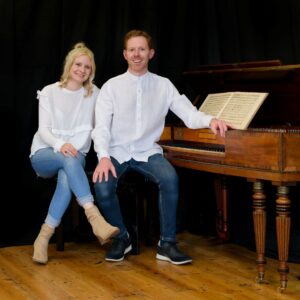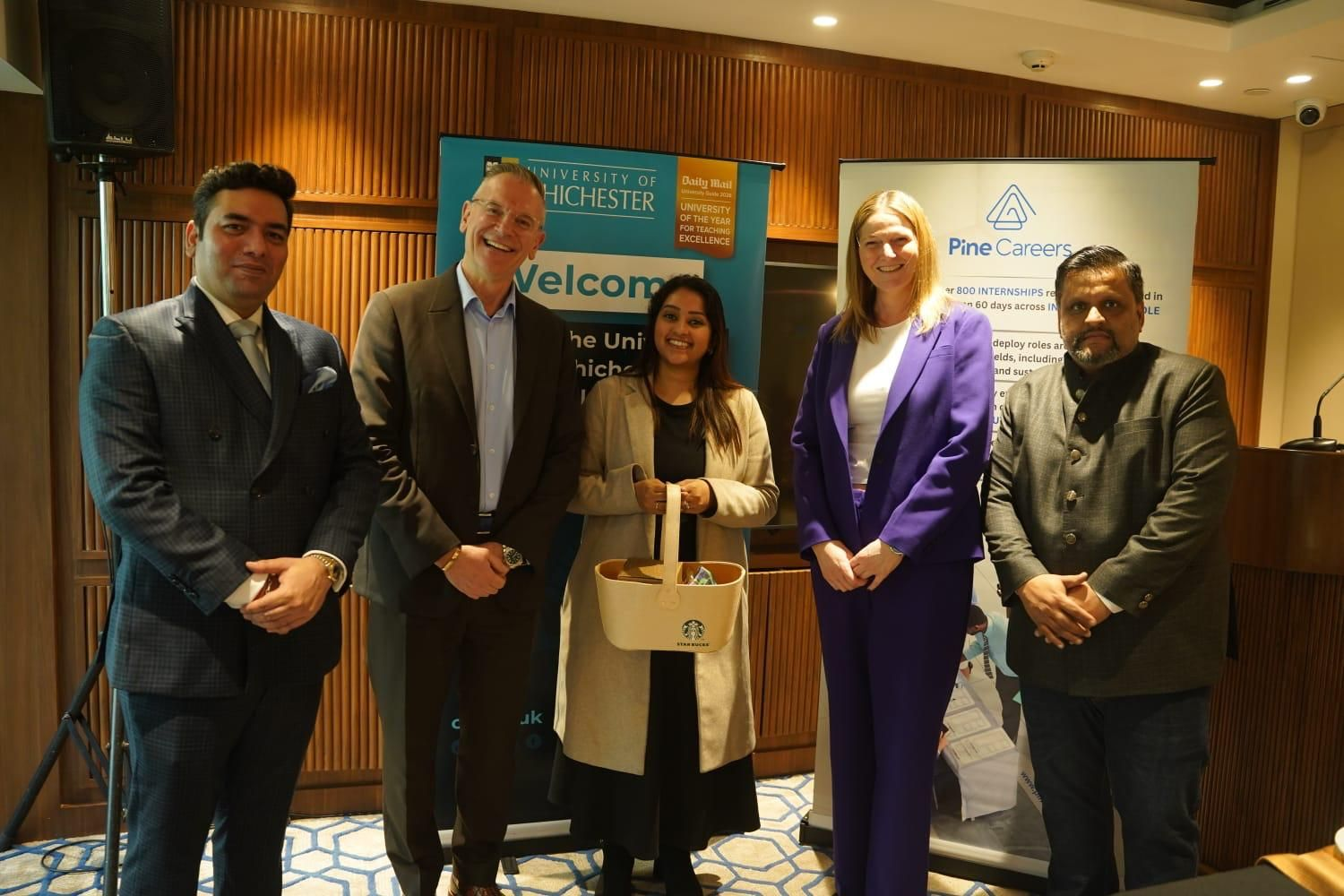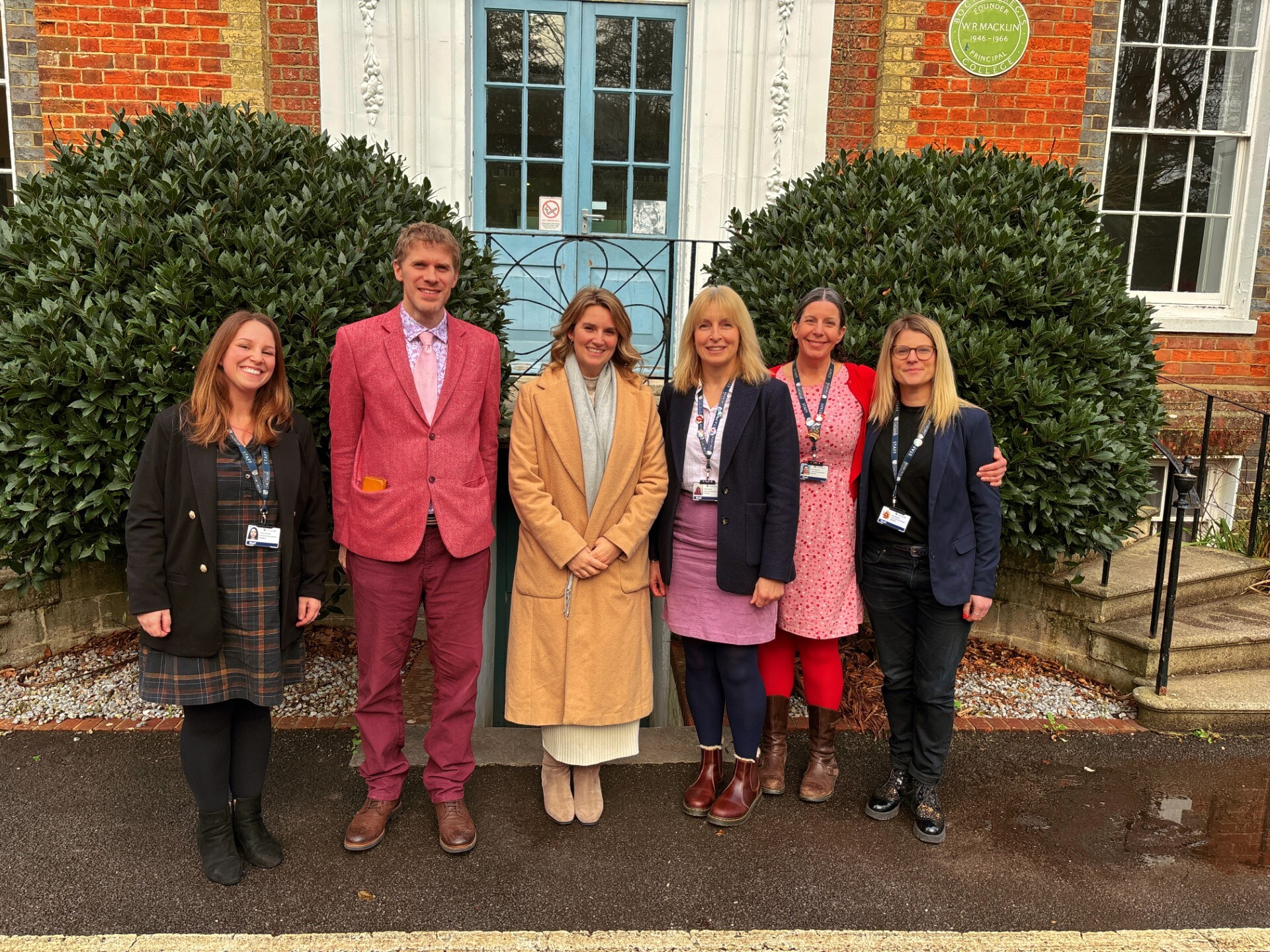Chichester alumna releases new Jane Austen song

University of Chichester alumna and soprano singer Penelope Appleyard has released a new Jane Austen song in time for the 250th anniversary of the author’s birth this year.
Penelope Appleyard received a first class degree in Music and English & Creative Writing and a distinction for her MA in Music Performance, before going on to the Birmingham Conservatoire. She is now a professional singer specialising in historical chamber music. She and pianist Jonathan Delbridge released ‘Ode to Pity’, a newly commissioned musical setting of Jane Austen’s early poem, on Friday 19 September 2025 with VOCES8 Records.
Penelope said: “It’s exciting for both music and literature to have this song out in the world, and a treat for me to be the first to sing it!”
‘Ode to Pity’ is a new composition by Donna McKevitt and is a musical setting of Austen’s teenage poem (1793) inspired by the music we know Jane heard and sang herself, including Scottish and Irish folk music in particular. Musical settings of Austen’s poetry are extremely rare, and there appear to be none currently performed or recorded in the English Song repertoire. This commission aims to change that in celebration of Austen’s 250th birthday, and it is the first known new work composed specifically for square piano in the contemporary repertoire.
‘Ode to Pity’ is composed for performance on a Broadwood 1814 square piano, connecting back to Jane Austen’s own likely model. This piece champions domestic music making, a largely female domain of the time, and links a female poet, composer, and performer across centuries. Jane was 17 at the time of writing and appears to intelligently mock the earnest grandeur of 18th-century literary conventions, using highly descriptive, often antiquated language that in fact says nothing of any real depth.
Performed by recital duo The Little Song Party (Penelope Appleyard & pianist Jonathan Delbridge), ‘Ode to Pity’ features in the duo’s new recital programme Sense & Musicality. The programme includes music that Jane played and sang herself (some being scores found in the Austen family music albums, often in her own hand) as well as music and composers mentioned or alluded to in her novels. Also included are pieces from the soundtracks of much-loved screen adaptations, quotes from her writing, as well as extracts from letters between Jane and family members, most often her beloved sister Cassandra.
For more information and upcoming concert dates visit www.thelittlesongparty.com. For more information about music courses at the University of Chichester, go to www.chi.ac.uk/music/





